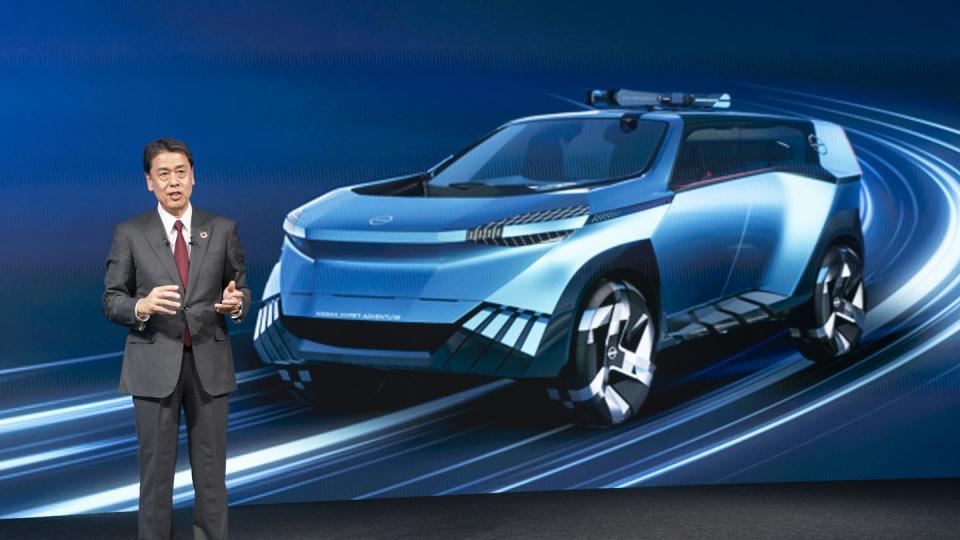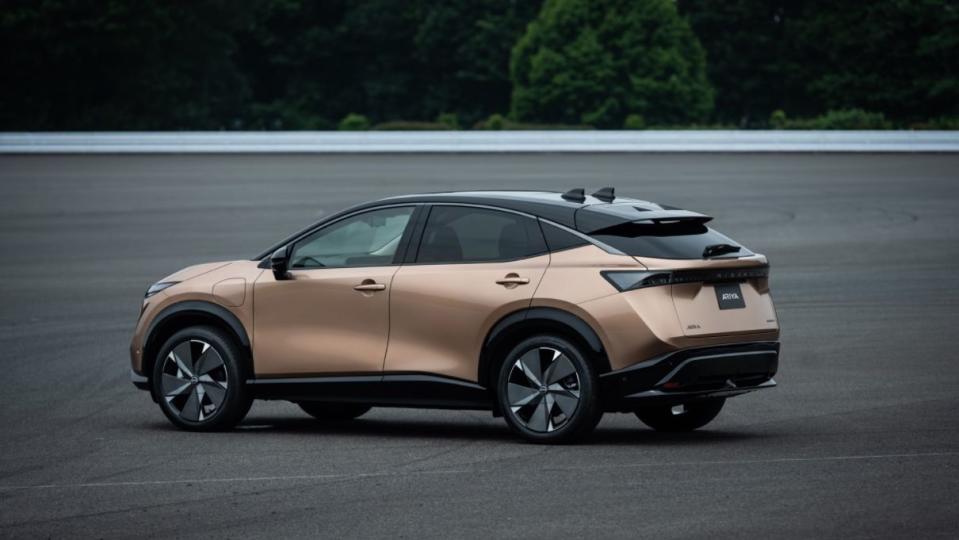Here’s How Nissan Plans for the Next Few Years

Nissan has revealed details of new business plan for the next three years, with plans to launch seven new models by 2026 just in North America.
The automaker will renew 78% of its model range in North America in the next three years, while also focusing on plug-in hybrids and e-Power models.
Nissan expects electrified models will represent 60% of its model mix by 2030, but has not indicated plans for an EV-only lineup in the more distant future.
Nissan has revealed a new business plan and product push, dubbed The Arc, that will see seven new models arrive in North America by 2026, while also revamping 78% of its lineup in the same timeframe.
Aimed at a relatively short timespan, The Arc will see Nissan launch 30 new models by 2026, 16 of which will be electrified if not battery-electric, with the remaining 14 being internal-combustion models.
"The Arc plan shows our path to the future. It illustrates our continuous progression and ability to navigate changing market conditions," said Nissan President and Chief Executive Officer Makoto Uchida.
The plan also saves a place for plug-in hybrid models—something Nissan hasn't made a priority to date in North America—as well as what Nissan refers to as e-Power models that will use engines as generators.
The automaker said it plans to launch 34 electrified models starting in fiscal year 2024 through 2030, with the eventual goal of electrified models representing 60% of the model mix by the end of the decade.
This represents a fairly sober and realistic goal, especially if considering that several automakers including Volvo have voiced plans to go EV-only by 2030.

But Nissan did not mention just how many of those electrified models would be EVs, or whether some of them would be offered stateside.
Likewise, the three-year plan did not shed too much light on the automaker's EV strategy following the delayed debut of the Ariya stateside.
Nissan's longer-term goal, however, is to make EVs cost as much to produce as internal-combustion vehicles, with this goal ultimately aimed at vehicle development strategies.
"By developing EVs in families, integrating powertrains, utilizing next-generation modular manufacturing, group sourcing, and battery innovations, Nissan aims to reduce the cost of next-generation EVs by 30% (when compared to the current model Ariya crossover) and achieve cost-parity between EVs and ICE models by fiscal year 2030," the automaker said.
Nissan does have a slightly larger EV lineup at the moment across its global offerings, beyond the familiar Leaf and Ariya, we should note.
Nissan also said it plans to rely on LFP batteries to drive down the costs of EVs, while a new generation of traditional nickel manganese cobalt (NCM) batteries is expected to boost energy density for the benefit of vehicle range.
"Nissan will significantly enhance NCM li-ion batteries, reducing quick-charging time by 50% and increasing energy density by 50% compared to the Ariya," the automaker said.
Nissan also expects solid-state batteries to arrive by fiscal year 2028, representing the third major battery type predicted to be in its lineup closer to the end of the decade.
Overall, Nissan's product offensive for the next three years will focus on renewing most of its stateside lineup, but not in the direction of everything becoming an EV or a hybrid. Far from it, Nissan clearly expects internal-combustion models to play a major role in the coming years, while also making plans for PHEV models.
So despite being an EV pioneer with the Leaf, Nissan retains a realistic view regarding its sales mix, and isn't sprinting toward a self-imposed EV-only future.
Will EV sales account for even 40% of the market by 2030, or will their levels remain lower by that point in time? Let us know what you think.

 Yahoo Autos
Yahoo Autos 